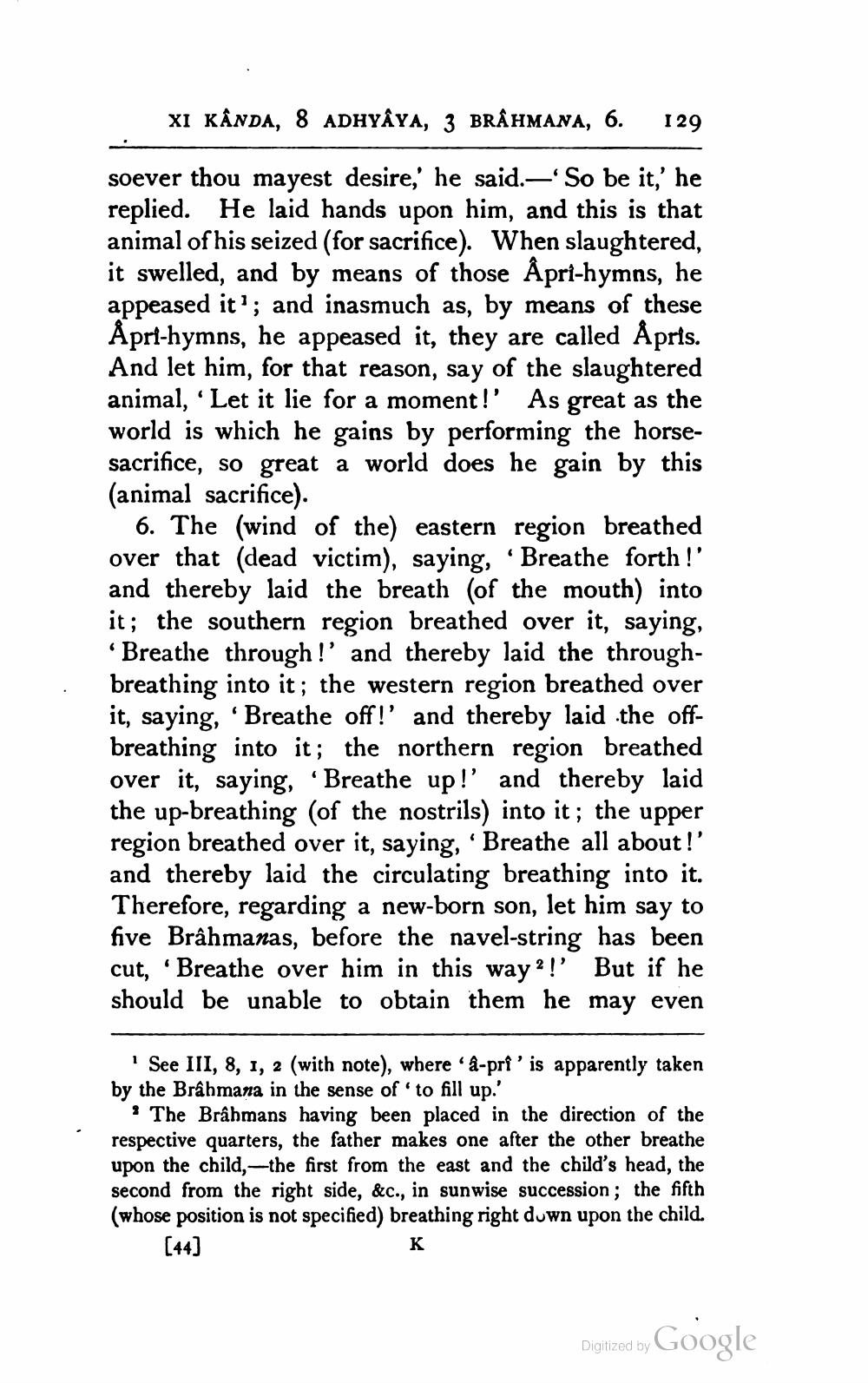________________
XI KÂNDA, 8 ADHYAYA, 3 BRÂHMANA, 6.
129
soever thou mayest desire,' he said. — So be it,' he replied. He laid hands upon him, and this is that animal of his seized (for sacrifice). When slaughtered, it swelled, and by means of those Åpri-hymns, he appeased it'; and inasmuch as, by means of these Åpri-hymns, he appeased it, they are called Åpris. And let him, for that reason, say of the slaughtered animal, 'Let it lie for a moment!' As great as the world is which he gains by performing the horsesacrifice, so great a world does he gain by this (animal sacrifice).
6. The (wind of the) eastern region breathed over that (dead victim), saying, “Breathe forth!' and thereby laid the breath (of the mouth) into it; the southern region breathed over it, saying,
Breathe through!' and thereby laid the throughbreathing into it; the western region breathed over it, saying, 'Breathe off!' and thereby laid the offbreathing into it; the northern region breathed over it, saying, Breathe up!' and thereby laid the up-breathing (of the nostrils) into it; the upper region breathed over it, saying, 'Breathe all about!' and thereby laid the circulating breathing into it. Therefore, regarding a new-born son, let him say to five Brâhmanas, before the navel-string has been cut, Breathe over him in this way?!' But if he should be unable to obtain them he may even
See III, 8, 1, 2 (with note), where å-pri'is apparently taken by the Brâhmana in the sense of to fill up.
? The Brâhmans having been placed in the direction of the respective quarters, the father makes one after the other breathe upon the child,--the first from the east and the child's head, the second from the right side, &c., in sunwise succession; the fifth (whose position is not specified) breathing right duwn upon the child.
[44]
Digitized by G




